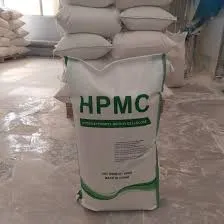
Nov . 08, 2024 02:32 Back to list
Enhancing Mortar Performance with Adhesive Additives for Improved Application Quality
Exploring the Benefits of Mortar Adhesive Additives
In the world of construction, the quality and durability of materials play a crucial role in the longevity and safety of structures. Mortar, a vital component in the building process, is often used to bind bricks, stones, and other materials together. However, traditional mortars may lack the necessary properties required for modern applications, particularly in challenging environments. This is where mortar adhesive additives come into play, offering a range of benefits that enhance the performance and reliability of mortar in various construction scenarios.
Understanding Mortar and Its Limitations
Mortar is primarily composed of sand, water, and a binder such as cement or lime. While it provides essential bonding characteristics, traditional mortar may encounter several limitations, including poor adhesion, reduced workability, and susceptibility to environmental factors like moisture and temperature fluctuations. These issues can lead to cracking, peeling, and eventual structural failure. As a solution, manufacturers have developed mortar adhesive additives that can be mixed with conventional mortar compositions to improve their performance significantly.
Types of Mortar Adhesive Additives
Mortar adhesive additives come in several forms, each designed to address specific challenges faced during construction. Here are some of the most commonly used types
1. Polymer Emulsions These additives improve the flexibility, adhesion, and durability of mortar. When mixed with water, they create a bonding agent that enhances adhesion to various surfaces, making them particularly useful for tile installations and exterior applications where moisture resistance is critical.
2. Hydrophobic Agents These are added to mortars to reduce water absorption, thereby preventing damage due to freeze-thaw cycles. This is especially beneficial in colder climates, where moisture can lead to significant deterioration over time.
3. Anti-Shrinkage Additives These compounds are crucial for preventing the cracking that can occur as mortar dries and shrinks. By incorporating anti-shrinkage additives, contractors can ensure a more stable bond that withstands the test of time.
mortar adhesive additive

4. Fibers The addition of synthetic or natural fibers can help enhance the tensile strength and durability of mortar. Fiber-reinforced mortar is less prone to cracking and offers improved impact resistance, making it an excellent choice for high-traffic areas.
Benefits of Mortar Adhesive Additives
1. Enhanced Bonding Strength One of the most significant advantages of mortar adhesive additives is their ability to improve the bonding strength of the mortar. This leads to stronger, more durable joints that are less prone to failure under stress.
2. Improved Workability Additives can enhance the workability of mortar, making it easier to mix, spread, and shape. This can significantly decrease labor time and improve the overall efficiency of a construction project.
3. Resistance to Environmental Factors With the right additives, mortars can be designed to withstand harsh weather conditions, including extreme temperatures and moisture. This is crucial for outdoor applications and ensures that structures remain intact for years to come.
4. Versatility Mortar adhesive additives provide construction professionals with the flexibility to tailor their mortar mixes to meet specific project requirements. Whether it’s for residential buildings, commercial structures, or specialized applications like pools or facades, additives can be customized to achieve optimal performance.
5. Cost-Effectiveness While there may be an initial investment in higher-quality mortars with additives, the long-term savings in repairs, maintenance, and replacement can far outweigh these costs. Enhanced durability means fewer issues down the line, which is a considerable advantage for both contractors and property owners.
Conclusion
Incorporating mortar adhesive additives into construction projects is a game changer for enhancing the quality and longevity of structures. By addressing traditional mortars' limitations and providing a range of benefits, these additives are essential for modern construction practices. As the industry continues to evolve, adoption of innovative materials and techniques, including mortar adhesive additives, will become even more important in crafting durable and resilient edifices that stand the test of time.
-
Versatile Hpmc Uses in Different Industries
NewsJun.19,2025
-
Redispersible Powder's Role in Enhancing Durability of Construction Products
NewsJun.19,2025
-
Hydroxyethyl Cellulose Applications Driving Green Industrial Processes
NewsJun.19,2025
-
Exploring Different Redispersible Polymer Powder
NewsJun.19,2025
-
Choosing the Right Mortar Bonding Agent
NewsJun.19,2025
-
Applications and Significance of China Hpmc in Modern Industries
NewsJun.19,2025







